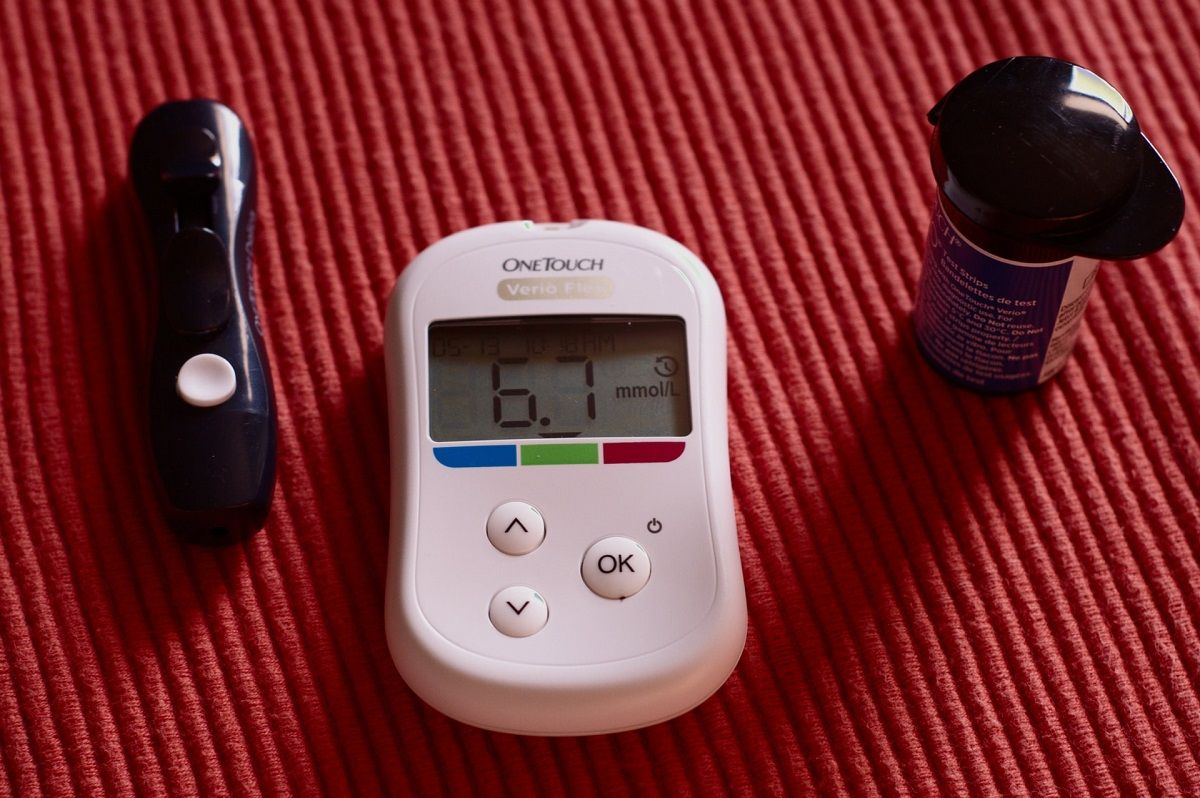
Living with diabetes requires a fair amount of planning, organization, responsibility and vigilance. You can live a pretty normal and full life with this health condition if you educate yourself on how to cope with it, and master how to manage it.
Whether you’ve recently been diagnosed with diabetes, or you have a loved one living with diabetes, this article will help educate you on what it’s really like.
We spoke with Jake Cofield, a 30 year old professional photographer who is living with diabetes and thriving. Jake has type 1 diabetes, and he answered some questions for us about how he copes with the condition, while offering advice to those who want to learn more about it.
1. How did you know you had diabetes?
Jake Cofield explains how young he was when he was first diagnosed, and how his parents figured it out: “My parents first noticed I was showing symptoms of diabetes when I was 7 years old. I remember camping with my mom, and she made a remark of how often I was going to the washroom. I thought it was normal going to the washroom up to 30 times per day. I was also always thirsty, had very little energy, and not much of an appetite for a 7-year-old. The doctor did a blood test, and my blood sugars were sky high. I was diagnosed with type 1 diabetes.”
2. How different are your symptoms compared to someone with type 2 diabetes? Can you explain the main differences between the two types of diabetes?
“The biggest difference is that type 1 diabetics don’t produce insulin because their body is attacking itself. As for type 2 diabetes, your body does not produce enough insulin, or cannot use the insulin effectively in your body.”
3. How have your symptoms changed and how has your condition changed over time?
“My symptoms haven’t changed, but I think with over 20 years of experience living with diabetes, you recognize or react to things quicker when your blood sugars are too high or too low. I’m just more self-aware now compared to before. I’m aware of how my body responds when things are ‘off’, and when I’m feeling off, it’s typically due to diabetes.”
4. Which symptoms are currently the most difficult to cope with?
“The most difficult symptom to deal with is when my blood sugar levels are high and my mental health starts declining fast because of that state. When my blood sugar is high, sometimes my skin feels hypersensitive to clothing rubbing against it and I feel uncomfortable. I tend to be quiet, withdraw from others or be a bit short with people, because I just want what I am feeling to go away without drawing attention to myself.”
5. How has living with diabetes changed your life? What’s it like to live with diabetes?
Jake Cofield explains how because he has been living with diabetes from such a young age, he may not even fully recognize how much living with diabetes alters his life. Jake explains, “Diabetes has changed my life in many ways, likely without me realizing it. Most people who don’t have diabetes don’t have to check their blood every day, 4 – 8 times per day like I do. I have to perform a blood test on myself several times per day to check my blood sugar levels. I also have to use a diabetic pump and my reservoir/infusion set. I think I would be a different person if I didn’t have diabetes, since I am always taking care of myself and monitoring myself. Living with diabetes has made me a more responsible person and a better planner.”

6. What coping strategies do you use to manage your condition?
“I talk to my close family members and get support from them because they understand me and my condition. I also get counselling. I make sure to keep living a full and adventurous life, so people will be surprised when I tell them I have diabetes.”
Jake also explains how friends of diabetics can help out: “If your friend is diabetic and feels low, offer to get them a snack, and leave them be for a few minutes to treat their low. A sign they might be having a low is if they’re acting off, or not making much sense.”
7. What would happen if you didn’t responsibly manage your condition?
“In short, spending more time at the hospital is what would happen if I didn’t responsibly manage my diabetes. To elaborate, if I wasn’t closely monitoring myself and managing my condition, I’d watch my body slowly begin to fail me, because diabetes affects so much of the body’s systems. You typically hear about diabetics having bad feet, bad eyesight, and their body is slow at healing itself. Years of wear and tear on your body due to poor diabetes management can lead to a variety of health issues, some more dangerous than others.”
8. Do you see it changing for better or worse in the future as you get older?
“Diabetes management has gotten a lot easier since I have been diagnosed, and it’s getting better every day. Hopefully there will be a cure one day. Listen to your doctors if you’re diagnosed, because they’re aware of the current protocols for diabetic management and can help recommend tips that will work well for you.”
9. Are there any major ways diabetes limits you or impacts your life?
“Yes, diabetes can limit me and impact my life in many ways if I am not taking care of myself and if I’m not staying on top of it. As a diabetic, you will have good and bad days, but don’t let it beat you. I’ve learnt to always carry extra supplies and a juice box with me for those troubled times when I am out on the go and in need of something. Living with diabetes affects me physically and emotionally if my blood sugars are high or low, so I try to limit those highs and lows by monitoring myself closely.”
10. How significantly have you had to modify your diet? Any significant restrictions on what you can and can’t eat?
“With the diabetic pump that I have, I actually can eat what I want when I want. I could eat a whole bowl of sugar if I wanted to . . . not that I would!”

11. How has living with diabetes impacted your mental health?
Like many health conditions, living with diabetes can impact one’s mental health. It’s not easy living with a health condition like diabetes that seems to be a life sentence (unless there is a cure one day.)
Jake Cofield explains, “When it comes to mental health, I had a bad year a couple of years ago where I just gave up trying to stay positive about having diabetes, and I just wanted a break from it, but felt anxious about not being able to escape my condition. Diabetes is a 24/7 job and after almost 20 years of living with diabetes, I felt like I could not do it anymore. It felt as though I was stuck in a cage from which I couldn’t escape. I ended up going to the hospital about 10 times that year due to diabetes complications. If you’re living with diabetes and you feel this way, know that there are support groups and counsellors out there for diabetics. You aren’t the only one struggling with this condition, so please seek help.”
12. Does living with diabetes change the way you travel or do other activities?
“You can’t travel without your diabetic supplies that help you manage your condition. You have to have backups for your backups when you travel. That includes extra insulin, blood testing strips, reservoirs and infusion sets for your diabetic pump, a backup pump and syringes for another way to get insulin into you as a backup. When I travel, most of my luggage is diabetic supplies, especially for those long trips. You don’t want to be without your diabetic supplies when you are in a foreign country. When I’m traveling, I always research where I’m staying so that I know where the closest place is to grab sugar in some form if I need it.”
13. Is there a silver lining or any benefits of living with diabetes?
“When you’re living with diabetes, you learn to be more organized and responsible, more attuned to your body, and you learn how to take care of yourself in lots of different situations. Plus, you’ll always have the odd funny story about living with this condition. The kindness of strangers is nice to see, as many people are good to give you a juice box when you are thirsty.”
14. What would you do and how would your life change if there was a cure for diabetes?
“If there was ever a cure for diabetes, it would feel great to not have any diabetic medical gear attached to me anymore. I could walk around naked with nothing attached to my body, which would be pretty awesome.”
15. Any advice for new diabetics who have recently been diagnosed?
Jake Cofield has some parting words of advice for other diabetics: “Learn how your body feels with high or low blood sugar levels, and listen to your body. The more you know about how diabetes affects you, the faster and easier it is to get help before the symptoms get too serious. Finally, don’t let having diabetes define who you are. Show those ‘working pancreas people’ that we can succeed in life just as well as they can, if not better.”
Feature image: Jake Cofield Photography
If you’d like to find out if you’re genetically at higher risk for diabetes, get a comprehensive health report through CircleDNA.

Comments are closed.